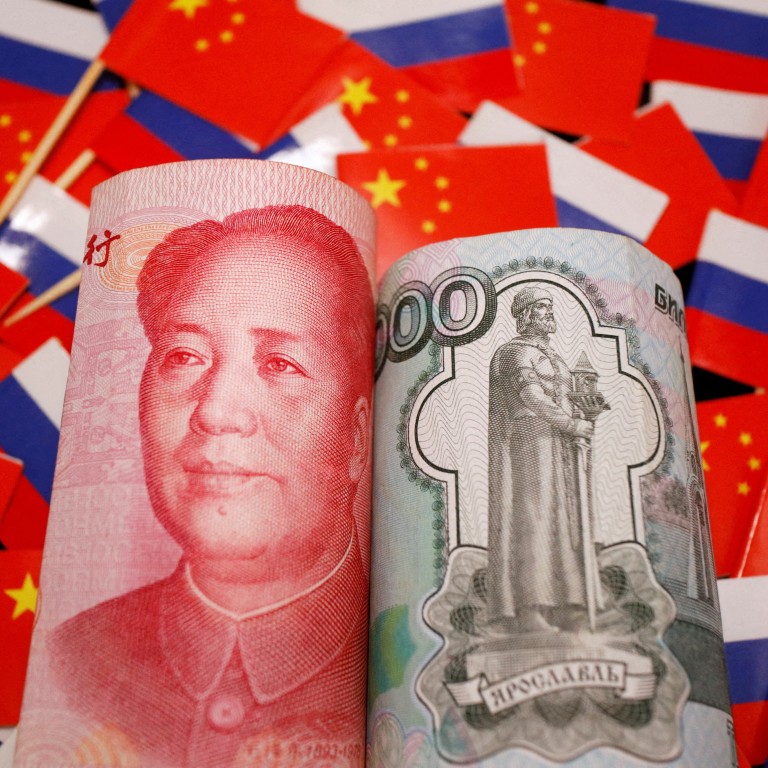
China’s yuan to remain under pressure amid stalling economic recovery, as central bank weighs moves to stem weakness
- Yuan has weakened by 4.7 per cent against the US dollar since the start of the year, but the central bank has refrained from direct intervention
- Overseas exporters have sold the yuan in favour of currencies, such as the US dollar and euro, further depreciating China’s currency
China’s yuan is likely to face more pressure in the coming weeks, prompting questions as to whether the central bank will intervene to support its currency, which has weakened by 4.7 per cent against the US dollar since the start of the year.
The yuan eased against the US dollar again on Thursday after having fallen to a seven-month low on Wednesday.
The People’s Bank of China (PBOC) set the daily midpoint fixing stronger than expected on Thursday, seen by market participants as an official attempt to rein in weakness.
The central bank’s daily midpoint setting is closely monitored by traders, and they widely take deviations between the official rate and their predictions as a sign of the PBOC’s stance towards the foreign exchange market.
We believe that although the yuan exchange rate may remain volatile for a certain period of time in the future, the momentum of depreciation will gradually weaken
“We believe that although the yuan exchange rate may remain volatile for a certain period of time in the future, the momentum of depreciation will gradually weaken,” said Northeast Securities on Thursday.
The PBOC has so far refrained from direct intervention in the foreign exchange market to steady the yuan.
And Guan believes the central bank will take a “targeted approach” to stabilising expectations and even “some hazy good news” may offer a greater boost to market confidence.
Analysts at Northeast Securities said that if the yuan depreciates “too quickly” the central bank may bring back its so-called countercyclical factor into its daily fixing, which effectively introduces a bias to the rate.
The PBOC can also raise banks’ foreign exchange risk reserve ratio, as well as issue bills in the offshore yuan market, to stem expectations that the currency may further decline, Northeast Securities added.
“A change in the attitude by the central bank can reverse the depreciation expectations in the exchange rate market,” the China-based financial services company said.
Yuan’s elevated trade use all talk. Russia would give right arm for US dollars
Meanwhile, as China pushes for more international use of the yuan, overseas exporters have also sold the Chinese currency in exchange for more convertible currencies, such as the US dollar and the euro, adding further depreciation onto the yuan, observers said.
Russia’s central bank and its finance ministry have been selling the yuan since the start of the year as it begins to make up for a revenue shortfall caused by Western sanctions – following the invasion of Ukraine – that have hit vital oil and gas exports.
Earlier this month, Russia’s finance ministry said it would sell 3.6 billion roubles (US$42 million) worth of foreign currency a day between June 7 and July 6, an increase in the volume of daily operations from the previous month.
Moscow has said it would sell the yuan, rather than what it terms “unfriendly” Western currencies, underscoring the growing importance of the Chinese currency in ensuring economic stability in Russia despite the sanctions.
What China lacks most now may be confidence in its economy, and this is hard to deal with
Henry Chan, a senior visiting research fellow of Cambodia Institute for Cooperation and Peace, said Beijing has the ability to stabilise its currency as China has the world’s largest foreign exchange reserves.
“If China cannot support its currency, all currencies will fail,” he said. “So, if China wants to support, it surely can. But if it doesn’t support, others will continue to sell [the yuan].
“What China lacks most now may be confidence in its economy, and this is hard to deal with.”
Additional reporting by Reuters


